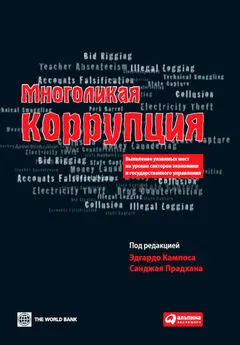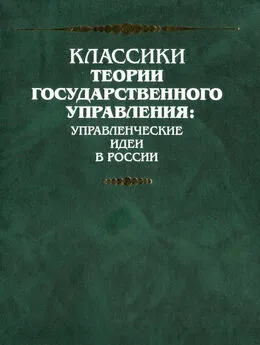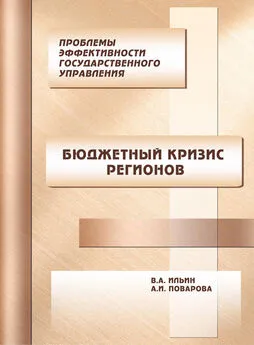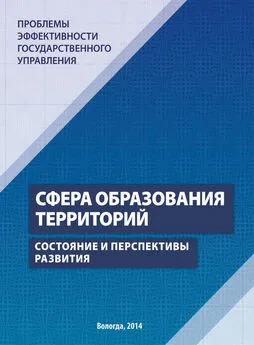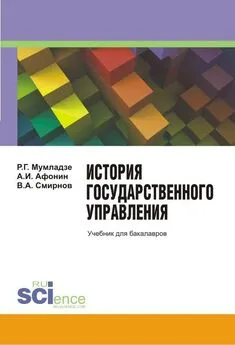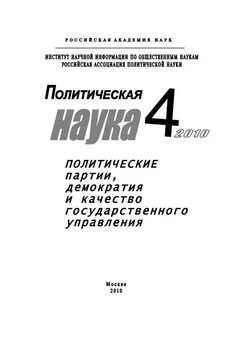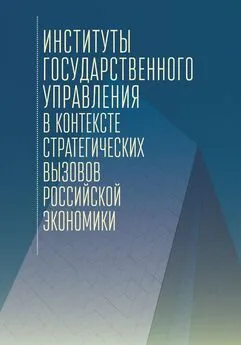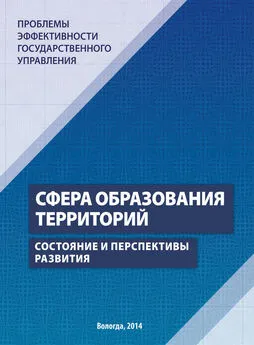Санджай Прадхана - Многоликая коррупция. Выявление уязвимых мест на уровне секторов экономики и государственного управления
- Название:Многоликая коррупция. Выявление уязвимых мест на уровне секторов экономики и государственного управления
- Автор:
- Жанр:
- Издательство:Array Литагент «Альпина»
- Год:2010
- Город:Москва
- ISBN:978-5-9614-2185-9
- Рейтинг:
- Избранное:Добавить в избранное
-
Отзывы:
-
Ваша оценка:
Санджай Прадхана - Многоликая коррупция. Выявление уязвимых мест на уровне секторов экономики и государственного управления краткое содержание
Многоликая коррупция. Выявление уязвимых мест на уровне секторов экономики и государственного управления - читать онлайн бесплатно полную версию (весь текст целиком)
Интервал:
Закладка:
Анализируя некоторые инфраструктурные проекты, следователи обнаружили, что нецелевое использование служебного автотранспорта и хищение бензина в них были вполне обыденным явлением. Казалось бы, отсутствие автомобиля – пустяк. Но он может помешать государственным инспекторам добраться до объекта и проследить за ходом работ по строительству дороги. Таким образом, падает эффективность контроля, что порождает новые проблемы и создает условия для дальнейших хищений.
Ниже перечислены индикаторы, сигнализирующие о нецелевом использовании государственного имущества:
• использование служебного автотранспорта в личных целях;
• использование государственного имущества (например, компьютеров) и сотрудников (например, вспомогательного персонала) в личных целях;
• неоправданно высокие расходы на питание, проживание и личные цели при выполнении должностных обязанностей;
• появление государственного имущества в частных жилых помещениях;
• использование оплачиваемой сверхурочной работы сотрудников для выполнения личных поручений;
• наличие репутации человека, склонного к злоупотреблению государственным имуществом;
• назначение друзей и родственников (в том числе супругов) на государственные должности;
• необоснованное использование консалтинговых услуг.
Литература
ADB (Asian Development Bank). 1998. Anti-Corruption: Policies and Strategies . Manila: ADB.
ADB/OECD/Transparency International. 2005. Curbing Corruption in Tsunami Relief Operations. Proceedings of the Jakarta Expert Meeting, April 7–8. Manila: ADB.
Batha, E. 2005. «Corruption and Aid» Reuters, November 9. http://www.alertnet.org/the facts/reliefresources/11315551833.htm.
Burton, Robert A. 2005. «Improving Integrity in Public Procurement: The Role of Transparency and Accountability.» In Fighting Corruption and Promoting Integrity in Public Procurement, 23–28. Paris: OECD.
Campos, J. E., and J. Syquia. 2006. «Managing the Politics of Reform: Overhauling the Legal Infrastructure of Public Procurement in the Philippines.» World Bank, Washington, DC.
CNN. 2005. «Dozens Indicted in Alleged Katrina Scam: Red Cross Contract Workers Accused of FilingFalseClaims,» December29. http://www.cnn.com/2005/LAW/12/28/katrina.fraud/index.html.
Harvey, R. 2005. «Corruption Challenge for Aceh Aid.» BBC News, May 31. http://newsvote.bbc.co.uk/mpapps/pagetools/print/news.bbc.co.uk/2/hi/asia-pacific/4583557.stm.
Klitgaard, Robert. 1988. Controlling Corruption. Berkeley: University of California Press.
Manapat, Ricardo. 1991. Some Are Smarter than Others: The History of Marcos’ Crony Capitalism. New York: Aletheia Publications.
Manning, Nick, and Neil Parison. 2004. International Public Administration Reform. Washington, DC: World Bank.
Merle, R., and J. Markon. «Ex-Pentagon Official Admits Job Deal.» Washington Post, April 21, p. A1. Merle, R. 2004. «Long Fall for Pentagon Star: Druyun Doled Out Favors by the Millions.» Washington Post, November 14, p. A1.
Mitchell, L. E. 2005. «Symposium: Corporate Misbehavior by Elite Decision-Makers: Perspectives from Law and Social Psychology: Structural Holes, CEOs, and Informational Monopolies – the Missing Link in Corporate Governance.» Brooklyn Law Review 70 (Summer): 1313.
Mora, Jose Eduardo. 2004. «Central America: The High Cost of Corruption» Inter Press Service, http://www.worldrevolution.org/article/1624.
Mugazi, Henry. 2005. «Corrupt Public Procurement. Civil Society Should Be Involved More in Following Up Corrupt Officials.» Newsletter 3, August. http://www.ms.dk/sw930/.asp
Nas, T. F., A. C. Price, and C. T. Weber. 1986. «A Policy-Oriented Theory of Corruption.» American Political Science Review 80 (March): 107–119.
New York State, Office of Attorney General Eliot Spitzer. 2001. «Eleven School Custodians Arrested for Kickback and Bid Rigging Scheme.» Press Release, December 11. http://www.oag.state.ny.us/press/2001/dec/dec11b_01.html.
Nunberg, Barbara. 1997. «Rethinking Civil Service Reform: An Agenda for Smart Government.» Poverty and Social Policy Working Paper, World Bank, Washington, DC.
Odhiambo, Walter, and Paul Kamau. 2003. «Public Procurement: Lessons from Kenya, Tanzania, and Uganda.» Working paper 208, OECD Development Centre, Paris. http://www.u4.no/document/literature/Odhiambo-public-procuremnt-Tz-Ug-Ky.pdf.
OECD. 2005. «Fighting Corruption and Promoting Integrity in Public Procurement.» Paris: OECD.
Paine, L., R. Deshpande, J. D. Margolis, and K. E. Bettcher. 2005. «Up to Code: Does Your Company’s Conduct Meet World-Class Standards?» Harvard Business Review 83 (12): 122–133.
Rose-Ackerman, Susan. 1978. Corruption: A Study in Political Economy. New York: Academic Press.
Rose-Ackerman, Susan. 1999. Corruption and Government: Causes, Consequences, and Reform. Cambridge, UK: Cambridge University Press.
Sacerdoti, Giorgio. 2005. «Forum Workshop on Identifying Risks in the Bidding Process to Prevent and Sanction.» In Fighting Corruption and Promoting Public Integrity in Public Procurement, 153–160. Paris: OECD.
Sandholtz, W., and M. Gray. 2005. «International Determinants of National Corruption Levels .» In Transparency International Global Corruption Report 2005 . http://www.globalcorruptionreport.org/download.html#download.
Soreide, Tina. 2006. «Procurement Procedures and the Size of Firms in Infrastructure Contracts.» Paper prepared for the World Bank ABCDE conference, Tokyo, May 29–30.
Stone, R. W. 2004. «The Political Economy of IMF Lending in Africa.» American Political Science Review 98 (4): 577–591.
Thachuk, K. 2005. «Corruption and International Security» SAIS Review 25 (Winter-Spring): 143–152.
Transparency International. 2002. «Status Report on the Integrity Pact: The Concept, the Model, and Present Applications.» Transparency International (December 31).
Transparency International. 2006a. Handbook: Curbing Corruption in Public Procurement. http://www.transparency.org./global_priorities/public_contracting
Transparency International. 2006b. Global Corruption Report 2006 . http://www.globalcorruptionreport.org/download.html#download.
Trepte, Peter. 2005. «Transparency and Accountability as Tools for Promoting Integrity and Preventing Corruption in Procurement: Possibilities and Limitations.» OECD, Paris.
(U. S. Department of Justice). n. d. «Preventing and Detecting Bid Rigging, Price Fixing, and Market Allocation in Post-Disaster Rebuilding Projects: An Antitrust Primer for Agents and Procurement Officials.» http://www.usdoj.gov/atr/public/guidelines/disaster_primer.htm.
U. S. Department of the Treasury. 2004. «U.S. Identifies Front Companies for Saddam Hussein Regime.» Press Release, Office of Public Affairs, April 15, Washington, DC. http://www.cpa-rqa.org/transcripts/20040415_front_companies.html.
U. S. Government Accountability Office. 2006. «Company Formations: Minimal Ownership Information is Collected.» Report 06–376 (April).
Volcker Committee (Independent Inquiry Committee into the United Nations Oil-For-Food Programme, chaired by Paul A. Volcker). 2005a. Report on the Manipulation of the Oil-For-Food Programme (October 27). http://www.iic-offp.org/documents/IIC%20Final%20Report%2027Oct2005.pdf.
Volcker Committee (Independent Inquiry Committee into the United Nations Oil-For-Food Programme, chaired by Paul A. Volcker). 2005b. «Third Interim Report» (August 8). http://www.iic-offp.org/documents/Third%20Interim%20Report.pdf.
Ware, G. T., and G. P. Noone. 2003. «The Culture of Corruption in the Post Conflict and Developing World. “ In Imagine Coexistence: Restoring Humanity After Violent Ethnic Conflict, ed. A. Chayes and M. Minnow. San Francisco, CA: Jossey-Bass.
Ware, G. T., and G. P. Noone. 2005. «The Anatomy of Transnational Corruption.» International Affairs Review 14 (Fall): 29–52.
Wax, E. 2005. «Kenya Is Buffeted by Graft Scandals.» The Washington Post , February 13.
Werlin, H. H. 2005. «Corruption and Foreign Aid in Africa.» Orbis 49 (Summer): 517–527.
Wittig, Wayne A. 2005. «Linking Islands of Integrity to Promote Good Governance in Public Procurement: Issues for Consideration.» In Fighting Corruption and Promoting Integrity in Public Procurement, pp. 109–114. Paris: OECD.
World Bank. Forthcoming. Corruption vs. Technology in Public Procurement.
Yen, H. 2005. «GAO Probes Katrina Credit Card Bills: Audits Examine Purchases by Federal Workers for Abuse, Overpayment.» Washington Post, December 27, p. A23. See also http://www.cnn.com/2005/LAW/12/28/katrina.fraud/index.html.
Zucker, J.S. 2004. «The Boeing Suspension: Has Increased Consolidation Tied the Department of Defense’s Hands?» The Army Lawyer, April. https://www.jagcnet.army.mil/JAGCNETInternet/Homepages/AC/ArmyFraud.nsf/(JAGCNetDocID)/86DABEE8FC6CC4DA8525703F005519E9/$FILE/The%20Boeing%20Suspension.pdf.
10. Борьба с коррупцией в налоговой сфере
Обзор
Туан Мин Ле
Как показывает анализ, в развивающихся странах и странах с переходной экономикой налоговые органы считаются одним из самых коррумпированных государственных институтов. Коррупция в налоговой и таможенной сфере снижает эффективность соответствующих ведомств и подрывает принцип справедливости. Она является одной из основных причин утечки доходов бюджета (см., например, Martinez-Vazquez, Arze, and Boex, 2004). Эмпирические исследования свидетельствуют о том, что в государствах с высоким уровнем коррупции появляется масштабная теневая экономика, приводящая к сокращению налогооблагаемой базы и к значительным потерям доходов бюджета (Schneider and Enste, 2000; Johnson, Kaufmann, and Zoido-Lobaton, 1998). Кроме того, порождая несправедливое отношение к честным налогоплательщикам и подрывая их конкурентоспособность, коррупция способствует уходу бизнеса из легального сектора – так возникает порочный круг, тормозящий развитие легальной экономики. Что же касается таможенных органов, то коррупция в этой сфере может даже создавать угрозу национальной безопасности, обеспечивая условия для контрабанды оружия и наркотиков.
Читать дальшеИнтервал:
Закладка:
